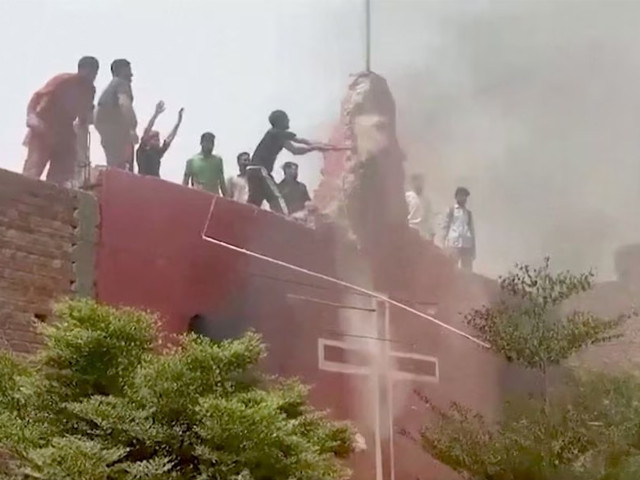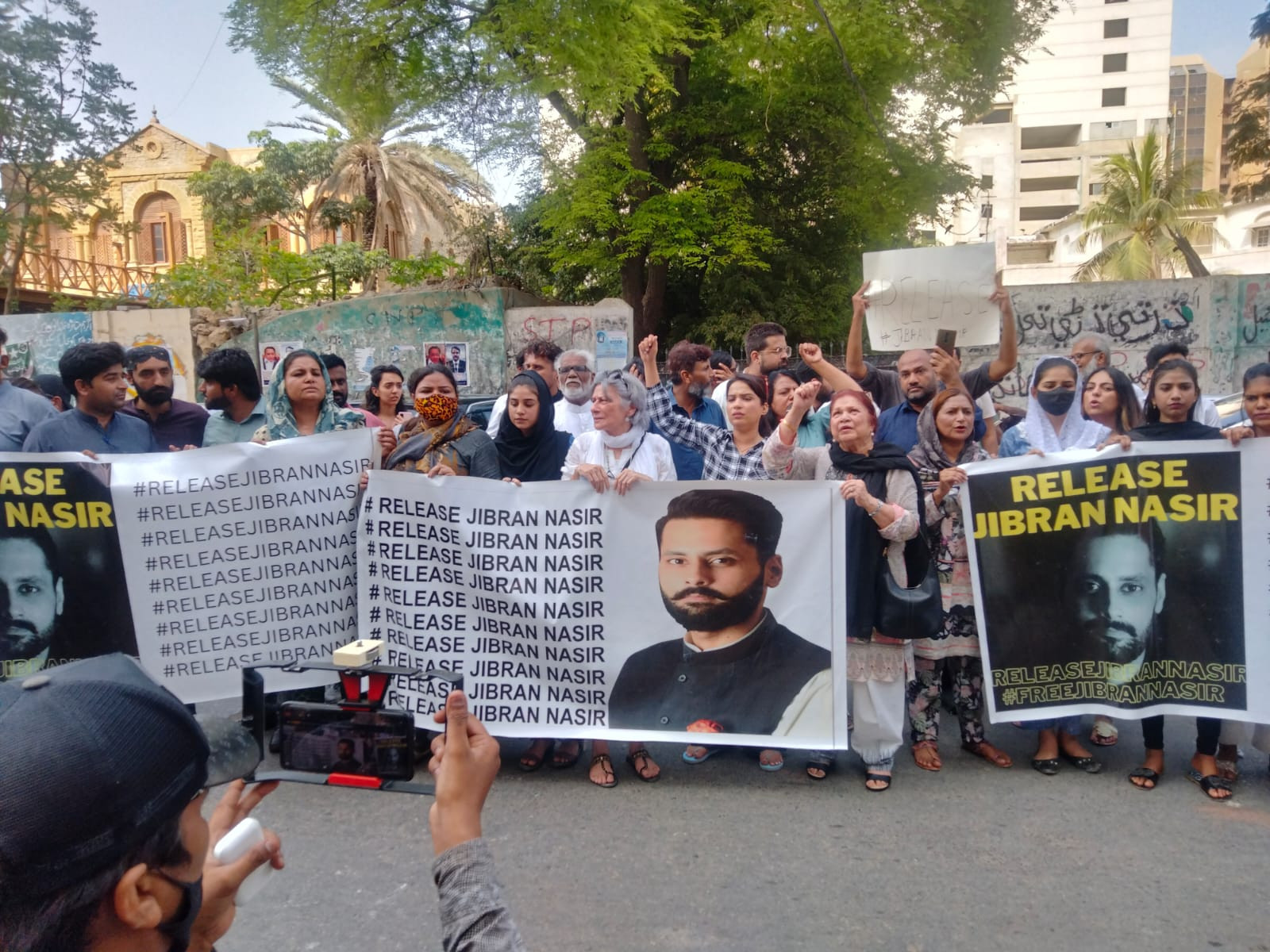
The real issue is Pakistan’s controversial Qisas and Diyat laws which are religiously inspired and frankly prone to misuse and manipulation
Yes, Shahrukh Jatoi is a murderer, but is he a ‘terrorist’?
What Jatoi did was criminal, but misusing the anti-terrorism law to stop the misuse of the Qisas law only validates it
Once again, the murder trial of Shahrukh Jatoi is making headlines. Since December 24th, 2012, the evening Shahzeb Khan was shot, the case has constantly been in and out of the media spotlight.
As per the latest developments, the Sindh High Court (SHC) ordered a retrial of the case in November 2017, following which the session court released the accused on bail on December 23rd, 2017. This development has shocked many, particularly those belonging to the civil society who showed their intention to challenge the decision in the Supreme Court.
Despite several obstacles and delaying tactics employed – including misleading statements about the age of the accused murderer – by the influential family of Jatoi, the Anti-Terrorism Court (ATC) convicted Jatoi and his accomplices and awarded them strict punishments in June 2013.
But the case took a new turn when the deceased’s own family apparently reached some sort of a negotiation with the convict’s family and forgave him under the Qisas and Diyat law in September 2013. As per the law, the victim’s family can choose to do an out-of-court settlement and pardon the family of the accused. Usually, there is a certain sum of money (blood money) paid by the accused to the family of the victim as Diyat or Qisas. However, at that time, perhaps due to intense public pressure, the court did not proceed with the pardoning.
However, the case again took another dramatic twist when the SHC ordered a retrial, effectively nullifying punishments meted out to the accused as per the former verdict of the ATC court. According to the court, the pardon which the victim’s family had given in 2013 was void as the case had been tried in an ATC and included clauses of terrorism, and hence, granting a pardon should not have been possible in the first place. He ordered the retrial in a session court, which ironically also brought back the possibility of pardoning through Qisas and Diyat law into play.
In fact, the recent bail given to the accused from the session court materialised after the victim’s father, Aurangzeb Khan submitted an affidavit requesting the approval of Jatoi’s bail. He further requested the court to drop the case against the accused as he and his family had pardoned the convicts.
Now, however, the civil society has decided to challenge the retrial in the Supreme Court, arguing that it is a terrorism case and therefore SHC’s retrial should be put aside and the original verdict should be upheld.
The manner in which this case has become a media trial, it is impossible that the case is going to proceed in any sort of objective and normal way. Too many emotions of very well-meaning members of Pakistan’s civil society are attached.
While I agree with the good intentions of those who are challenging the verdict in the Supreme Court, I respectfully disagree with their strategy of trying to prove that the SHC was wrong in eliminating terrorism charges.
I have extremely high respect for people like Jibran Nasir. For the past some years, he has been at the forefront of liberal activism and has taken such positions bravely, which would make any liberal proud. He has stood up for minorities, spoken in favour of abducted bloggers when no one was risking speaking up, and also tried to provide an alternate narrative to the mainstream jingoism.
However, as mentioned earlier, in this case, while I agree with his intentions, I respectfully disagree with the methods he and some other activists are adopting.
In my opinion, in order to punish Jatoi, the definition of terrorism is being stretched and it is fundamentally a dangerous strategy to take. The Anti-Terrorism Act (ATA) is itself a controversial law which can be manipulated and misused to punish political opponents and also stifle dissent. The law has enabled prosecutors to circumvent the normal judicial procedure and go for “speedy” justice even for ordinary crimes.
What Jatoi did was criminal and abominable, but bracketing it under terrorism is dangerous overstretching, which does not bode well for justice in the long run.
Furthermore, under the current law of Qisas and Diyat, Khan’s parents are, unfortunately, well within their right to pardon.
Now, from a strictly normative and moral point of view, the civil society advocates are correct in saying that what we are right now witnessing is travesty of justice as apparently the parents have forgiven the criminals under pressure (or through some alleged sort of settlement). However, their way of addressing is wrong. Rather than using this opportunity given by the high profile nature of the case, to spark a debate on the real issue, they are trying to just punish Jatoi using whatever means they can.
The real issue is Pakistan’s controversial Qisas and Diyat laws which are religiously inspired and frankly prone to misuse and manipulation. These laws have unfortunately often been used in honour killings in the past for pardoning the murderer who often happened to be the brother or close relative of the deceased woman.
In 2016, luckily, the Parliament passed an amendment thereby making a prison sentence necessary for the accused even if they have been pardoned under Qisas and Diyat; however this law continues to be used in other instances.
In 2011, it was this very law which was used to provide relief to Raymond Davis, much to the dismay of many religious parties. Ironically, before his release, all of them had been screaming about letting the Pakistani courts decide instead of giving diplomatic immunity to Davis. At that point, the court made use of this law and released Davis, showing the religious parties and the rest of the Pakistani patriotic brigade the extent of amenability of this law to be misused. Yet, instead of coming to their senses, their resistance to amending this law has not wavered much.
In fact, most of the Pakistani public, including those who felt such an outrage over Davis, want the entire legal system to be based on a strict religious code, showing that they do not understand the possible implications. It should be understood that applying strict literal religious laws in modern complex societies will always lead to problems.
I have pointed out in one of my earlier articles on secularism that one advantage of having a secular state is delinking of legal code from religion. However, unfortunately, the word ‘secularism’ is so extremely disliked that even talking about it is difficult. In this scenario, a good alternate is to suggest amendments to the Qisas and Diyat law, on the same lines as was done in 2016, which would make its misuse extremely difficult.
If our civil society is really serious about providing justice, they should be directing talking about this issue rather than trying to misuse another controversial law, the Anti-Terrorism Act of 1997. Compared to blasphemy laws, where there is literally no room left for argument due to threats of extremely violent backlash, in this case, there is a precedent of amendments and it should not be an impossible task.
Misusing another controversial law to stop the misuse of the controversial Qisas law is not the answer. In fact, we are, in essence, reinforcing the validity of Qisas and Diyat law when instead of challenging it, we use an alternate and equally controversial route. Eventually, we will end up consolidating both theses regressive laws and it will be the society that will suffer.




COMMENTS (21)
Comments are moderated and generally will be posted if they are on-topic and not abusive.
For more information, please see our Comments FAQ